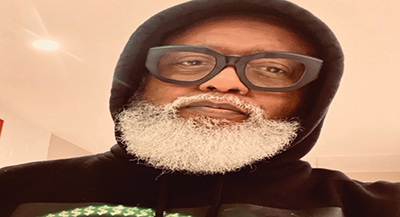By Yuriy Andriyashchuk
(Source: Hip-Hop Vibe)
Barry Michael Cooper, ‘New Jack City’ Screenwriter, Dies at 66
Barry Michael Cooper, a pioneer of Black cinema in the 1990s, passed away on Tuesday in Baltimore, Maryland. He was 66. Cooper’s death was confirmed by a representative for Spike Lee, who worked with the acclaimed writer and producer on Netflix’s adaptation of She’s Gotta Have It. Cooper’s legacy includes iconic films that shaped the cultural and social narratives of the Black experience.
Cooper was more than a screenwriter. He was a storyteller whose pen immortalized Harlem’s struggles and triumphs. With New Jack City, Sugar Hill, and Above the Rim, Cooper created a “Harlem trilogy” that defined an era of urban cinema. His career path from investigative journalism to Hollywood screenwriting reflects a deep understanding of the communities he represented.
A Harlem Visionary Who Shaped Black Cinema
Born and raised in Harlem, Cooper’s upbringing heavily influenced his storytelling. Harlem, often considered the epicenter of Black culture, was more than a backdrop in his work—it was a character in itself.
Before Hollywood, Cooper was an investigative journalist at The Village Voice, where he exposed the realities of urban America. His 1989 article, “Kids Killing Kids: New Jack City Eats Its Young,” explored the devastating crack epidemic in Detroit. This piece inspired his feature screenwriting debut, New Jack City, directed by Mario Van Peebles.
Released in 1991, New Jack City was a groundbreaking film. It combined gritty realism with a compelling narrative about drug lords, addiction, and redemption. Starring Wesley Snipes, Ice-T, and Chris Rock, the film brought Harlem’s crack epidemic to the forefront of popular culture.
How Barry Michael Cooper Defined the ‘90s Harlem Trilogy
Cooper didn’t stop with New Jack City. He went on to complete his “Harlem trilogy” with Sugar Hill and Above the Rim, both released in 1994.
- Sugar Hill: A Crime Drama with a Soulful Core
Starring Wesley Snipes and Michael Wright, Sugar Hill focused on two brothers navigating the challenges of crime, family, and morality. While it didn’t achieve the critical acclaim of New Jack City, it offered a poignant look at Harlem’s underbelly. The film’s exploration of loyalty and redemption resonated with audiences who saw themselves in its characters.
- Above the Rim: Basketball Meets Survival
Above the Rim, featuring Tupac Shakur, Leon, and Marlon Wayans, blended street basketball with themes of ambition and survival. The movie’s soundtrack, featuring 1990s hip-hop legends, became just as iconic as the film itself. Cooper’s script highlighted the intersection of sports and community struggles, making it a cultural touchstone for urban youth.
From Journalism to Hollywood: A Unique Career Path
Cooper’s transition from journalist to screenwriter was unconventional but impactful. At The Village Voice, he gained a reputation for investigative stories that uncovered the harsh realities of urban life.
In 1987, Cooper wrote the article “Teddy Riley’s New Jack Swing: Harlem Gangsters Raise a Genius,” which coined the term “New Jack Swing.” This hybrid of R&B and hip-hop became a defining sound of the late 1980s and 1990s, further cementing Cooper’s influence on Black culture.
Expanding His Horizons: Beyond the Harlem Trilogy
Though his trilogy cemented his legacy, Cooper continued to explore storytelling in other ways. In 2005, he made his directorial debut with Blood on the Wall$, a low-budget web series about a television producer’s downward spiral.
In 2008, Cooper produced an episode of American Gangster focusing on Larry Davis, a controversial figure in New York’s criminal underworld. His ability to shine a light on complex, often misunderstood characters remained a hallmark of his work.
Why Barry Michael Cooper’s Legacy Endures
Cooper’s work remains relevant because it captured timeless themes: ambition, morality, and survival. His films offered a lens into the complexities of Black life during the crack epidemic, tackling systemic issues with authenticity.
Evergreen Influence: New Jack Swing and Hip-Hop
Cooper’s impact extends beyond film. His journalism and storytelling helped shape the cultural phenomenon of New Jack Swing, influencing artists like Teddy Riley, Guy, and Janet Jackson. This fusion of R&B and hip-hop still resonates in modern music.
A Voice for Urban Communities
Through his trilogy, Cooper gave a voice to urban communities often overlooked in mainstream media. His characters, though flawed, were deeply human. They reflected the struggles, hopes, and dreams of Harlem’s residents during turbulent times.
Remembering the Man Behind the Stories
Cooper moved to Baltimore in the 1990s, where he lived until his passing. Despite stepping back from Hollywood, his influence on Black cinema and music remained undeniable. His films continue to inspire new generations of filmmakers and audiences.
Barry Michael Cooper’s legacy isn’t just in the stories he told but in the lives he touched. His ability to weave investigative journalism into compelling narratives created a new blueprint for socially conscious storytelling.
What’s Next for His Work?
As conversations around urban culture and systemic challenges evolve, Cooper’s work remains a vital resource for understanding the past. With the resurgence of interest in 1990s hip-hop and cinema, his trilogy could see renewed appreciation.
Streaming platforms have introduced a new generation to films like New Jack City. Fans and historians alike can look forward to celebrating Cooper’s contributions to cinema, music, and journalism.
Barry Michael Cooper: A Life Well Lived
Cooper is survived by his son, Matthew. His storytelling, deeply rooted in his Harlem upbringing, captured the struggles and triumphs of urban America. While his passing marks the end of an era, his legacy ensures that his voice will never be silenced.
Barry Michael Cooper’s work transcends entertainment—it’s a mirror reflecting the complexities of Black life. From Harlem to Hollywood, his stories will continue to inspire for generations to come.
By connecting cinema with social commentary, Cooper redefined what it meant to tell Black stories in America. His legacy lives on through his films, his writing, and the cultural movements he helped create.

